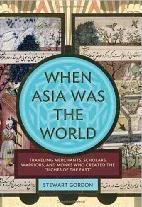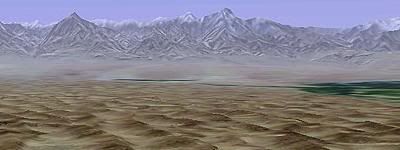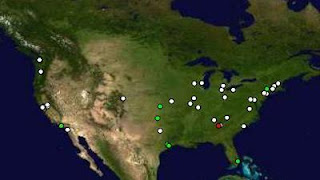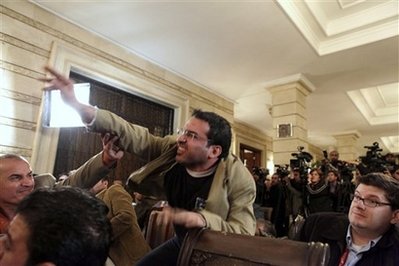 It's a cool summer night in Houston. I rode my bike through a quiet Montrose neighborhood, temptingly close to half a dozen quiet cool spots--coffee bars, cheap dives, galleries, ethnic fusions restaurants, and jazz venues--that I'd like to live my life in Houston being a regular at. This is old Montrose, north of West Gray, east of Montrose Boulevard, where the yuppie build ups haven't crowded their 90 degree angle duplexes within inches of the curb and wrapped their trendy paranoia in black faux iron grates.
It's a cool summer night in Houston. I rode my bike through a quiet Montrose neighborhood, temptingly close to half a dozen quiet cool spots--coffee bars, cheap dives, galleries, ethnic fusions restaurants, and jazz venues--that I'd like to live my life in Houston being a regular at. This is old Montrose, north of West Gray, east of Montrose Boulevard, where the yuppie build ups haven't crowded their 90 degree angle duplexes within inches of the curb and wrapped their trendy paranoia in black faux iron grates. These are wooden homes with frames and porches, ringed by broad lighted windows and shallow grass ditches where dinner guests struggle to park their cars. The driveways are crumbled concrete when the loamy clay beneath has shifted, risen, and sunk with the seasons to remind us all humans shouldn't live here and we'll all eventually die and leave this damp prairie behind. Fingers of weeds and orgies of ants shuffle out between the cracks, oozing nature at clothed and naked enemy.
 Of course humans always live in places they're not supposed to. We're built for sweeping river valleys and thicketed pine green forests. But we build our empires in mountains and over deserts. We crowd thundering bands of grazing hooved beasts out of their savannas and domesticate their children into steady sources of beef. We drain out swamps and marshes and level hills to accommodate grids of asphalt. Then, to consecrate the victory over nature, we subdivide God into theologies and chain him down with doctrines and hammer out truth into geometric patterns and shrines of false remorse. Arrogant chimps, we invent humility and charity to clothe our angry, tumescent root of conquest. Sated, men lie on earth's belly, point an accusing cock skyward toward God's firmament, drape the shaft in prayer cloths, and call the resulting tent a cathedral.
Of course humans always live in places they're not supposed to. We're built for sweeping river valleys and thicketed pine green forests. But we build our empires in mountains and over deserts. We crowd thundering bands of grazing hooved beasts out of their savannas and domesticate their children into steady sources of beef. We drain out swamps and marshes and level hills to accommodate grids of asphalt. Then, to consecrate the victory over nature, we subdivide God into theologies and chain him down with doctrines and hammer out truth into geometric patterns and shrines of false remorse. Arrogant chimps, we invent humility and charity to clothe our angry, tumescent root of conquest. Sated, men lie on earth's belly, point an accusing cock skyward toward God's firmament, drape the shaft in prayer cloths, and call the resulting tent a cathedral. I say this to preface my summer reading project. As many books as I can shove into my days, recorded a chapter at a sitting, and hopefully helping me organize the clutter of human behaviors into teachable units that my students will quickly forget. It's okay, I don't write for them. I write for me, because I remember what I write. But I also invite you look over my shoulder here and see if you won't enjoy it too.
This first book is When Asia Was the World by Stewart Gordon, a collection of overviews of the great travelers of Asia in the nine centuries between the end of the classical world and the beginning of the European age of exploration. Gordon gives us the tales of eight men who left behind records of their crossing between the civilizations ringing from the Eastern Med to the Sea of Japan--the lands of the Silk Road and the great empires that rose and crumbled north of the Indian Ocean.
 The first chapter follows the Buddhist monk Xuanzang in early 7th century CE northern China. Though his travels covered most of the known world, his tale remained entirely encompassed within the geographical reach of the Buddhist faith. Before Christianity and Islam conquered the globe, Buddhism was the faith uniting diverse civilization. He was born in the end days of the Sui Dynasty and traveled in the first years of the Tang, his path following a long chain of Buddhist monasteries that stretched from China to Afghanistan to the Deccan plain, to the lowlands of Bangladesh.
The first chapter follows the Buddhist monk Xuanzang in early 7th century CE northern China. Though his travels covered most of the known world, his tale remained entirely encompassed within the geographical reach of the Buddhist faith. Before Christianity and Islam conquered the globe, Buddhism was the faith uniting diverse civilization. He was born in the end days of the Sui Dynasty and traveled in the first years of the Tang, his path following a long chain of Buddhist monasteries that stretched from China to Afghanistan to the Deccan plain, to the lowlands of Bangladesh. Xuanzang was a scholar who enjoyed the great debates about the meaning of suffering and discovering the Middle Way as demanded by his faith. But as the teachings of his fellow monks either conflicted with each other or conflicted with the translations of the ancient Sanskrit texts written by Siddhartha Gautama, Xuanzang determined to travel to India, study the texts for himself, and bring back the true wisdom of the Buddha that his fellow holy men spent their lives pursuing.
The Silk Road beyond the reach of China was a dangerous place in the first few years of the Tang Dynasty. The desert was treacherous and bandits plagued any travelers who appeared weak. The Tang emperor made it illegal for people to travel beyond the Middle Kingdom's border to spare his subjects from harm. By undertaking this pilgrimage, Xuanzang became an outlaw. As he traveled into the arid west, he was deserted first by his fellow monks, then by his guide. Soldiers passed out arrest notices to the Tang outposts that stretched into the desert, but Xuanzang eluded his pursuers until he passed beyond the reach of the emperor's troops. His guide warned him:
The Western roads are difficult and bad; sand streams stretch far and wide; evil spirits and hot wind, when they come, cannot be avoided; numbers of men traveling together, although so many, are misled and lost...

Reaching Danhuang, he was celebrated, then detained by the local king, Xu-wentai. Xu wanted the celebrated teacher to remain and build up the frontier kingdom's prestige as a place of learning. Xuanzang only got away by launching a hunger strike and humbling the king into honoring his journey. Xu relented at last and restored his own good name by provisioning Xuanzang for the rest of his journey with novice-companions, guards, servants, silk robes to use as currency, and a caravan of beasts for trade and food. Xuanzang's party entered the wide desert for the harshest leg of the journey, losing many men and cattle to freezing and starvation.
Xuanzang traveled through the lush valley of Issy Kul, where the nomadic "tent kingdom" rounded up wild horses to trade with Tang China for the silk and grains they couldn't acquire in their own lands, and around the Himalayas' highest points, reaching Afghanistan and then circling south toward the lands where the Buddha lived.
In this age, Buddhism dominated the lands of the Turks and Pashtuns and competed with Zoroastrianism for dominance in Persia. Buddhism, like Christianity in the Greco-Roman world, thrived because its theology contained elements that particularly suited it to being a state religion. It's emphasis on humanistic ethics and spiritual moderation (the "middle way") made it a strong unifying force in the Asian empires comprising so many different tongues, cultures, races, and economies. Stressing righteous living over reverence for any particular god encouraged good obedient citizenship and social harmony. The chain of monasteries along the silk trade routes stabilized commerce and communities. The kings of Asia could build up their own prestige by supporting monasteries, pilgrimage sites, and centers of learning.

Ironically, while Buddhism was thriving in China, Indochina, Persia, Afghanistan, Sri Lanka, Java, Korea and Japan, the religion was on the wane in its cradle, the Ganges Valley, as monarchs turned more to Hindu folk religions to mollify their subjects. In the Ganges Valley, traveling to the great shrines and temples of the Buddha's homeland. He found the faith torn by rivalries between the Great Vehicle and Small Vehicle sects, with both factions also feuding with the rising Brahministic polytheistic faiths. Still, Xuanzang spent the next 11 years traveling up and down the Ganges, from Bengal to the Deccan Plateau studying at holy sites--both the thriving and the nearly abandoned.
When he finally set out for his return, Xuanzang brought back 657 translated Sanskrit books and a wealth of relics and statues that would revivify the faith in China and protect its legacy from the collapse in its own cultural hearth. After 17 years abroad, Xuanzang approached the Tang's borders and wrote an apologetic explanation to his emperor.
I have accomplished a journey of more than 50,000 li... and now offer my homage with a body unimpaired and a mind satisfied with the accomplishment of my vows. I have beheld the Ghrirakuta Mountain, worshiped at the Bodhi Tree; I have seen traces not seen before; heard sacred words not heard before; witnessed spiritual prodigies, exceeding all the wonders of Nature...

The emperor pardoned him and Xuanzang returned home, becoming a celebrated teacher for a purified faith a living well into his silver years. Xuanzang's travels inaugurated a period of many more missions between China and India over the next four centuries, increased trade, and cemented a sense of world community between the far flung medieval civilizations of the East. Across numerous dynasties, Confucianist China and Hindu India found a mutual interest in militarily containing the aspirations of a growing Tibetan Empire, where Buddhism was just then flourishing, and politically dominating the Indochinese kingdoms of the south. The era that the scholar Xuanzang initiated altered the destiny of civilizations and ultimately weakened Buddhism's domination of Asia in the centuries before the wave of Islam pushed east.








